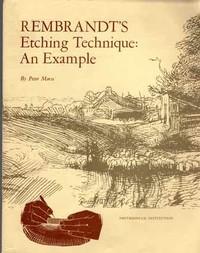Read this ebook for free! No credit card needed, absolutely nothing to pay.
Words: 41391 in 5 pages
This is an ebook sharing website. You can read the uploaded ebooks for free here. No credit cards needed, nothing to pay. If you want to own a digital copy of the ebook, or want to read offline with your favorite ebook-reader, then you can choose to buy and download the ebook.


: The Life of Gordon Volume II by Boulger Demetrius Charles - Gordon Charles George 1833-1885; Generals Great Britain Biography
aid at home, coldly replied on 11th January that Gordon is not the man he wants. If there had been no other considerations in the matter, I have no doubt that Sir Evelyn Baring would have beaten public opinion, and carried matters in the high, dictatorial spirit he had shown since the first mention of Gordon's name. But he had not made allowance for an embarrassed and purposeless Government, asking only to be relieved of the whole trouble, and willing to adopt any suggestion--even to resign its place to "the unspeakable Turk"--so long as it was no longer worried in the matter.
At that moment Gordon appears on the scene, ready and anxious to undertake single-handed a task for which others prescribe armies and millions of money. Public opinion greets him as the man for the occasion, and certainly he is the man to suit "that" Government. The only obstruction is Sir Evelyn Baring. Against any other array of forces his views would have prevailed, but even for him these are too strong.
On 15th January Gordon saw Lord Wolseley, as described in the last chapter, and then and there it is discovered and arranged that he will go to the Soudan, but only at the Government's request, provided the King of the Belgians will consent to his postponing the fulfilment of his promise, as Gordon knows he cannot help but do, for it was given on the express stipulation that the claim of his own country should always come first. King Leopold, who has behaved throughout with generosity, and the most kind consideration towards Gordon, is naturally displeased and upset, but he feels that he cannot restrain Gordon or insist on the letter of his bond. The Congo Mission is therefore broken off or suspended, as described in the last chapter. In the evening of the 15th Lord Granville despatched a telegram to Sir Evelyn Baring, no longer asking his opinion or advice, but stating that the Government have determined to send General Gordon to the Soudan, and that he will start without delay. To that telegram the British representative could make no demur short of resigning his post, but at last the grudging admission was wrung from him that "Gordon would be the best man." This conclusion, to which anyone conversant with the facts, as Sir Evelyn Baring was, would have come at once, was therefore only arrived at seven weeks after Sir Charles Dilke first brought forward Gordon's name as the right person to deal with the Soudan difficulty. That loss of time was irreparable, and in the end proved fatal to Gordon himself.
In describing the last mission, betrayal, and death of Gordon, the heavy responsibility of assigning the just blame to those individuals who were in a special degree the cause of that hero's fate cannot be shirked by any writer pretending to record history. Lord Cromer has filled a difficult post in Egypt for many years with advantage to his country, but in the matter of General Gordon's last Nile mission he allowed his personal feelings to obscure his judgment. He knew that Gordon was a difficult, let it be granted an impossible, colleague; that he would do things in his own way in defiance of diplomatic timidity and official rigidity; and that, instead of there being in the Egyptian firmament the one planet Baring, there would be only the single sun of Gordon. All these considerations were human, but they none the less show that he allowed his private feelings, his resentment at Gordon's treatment of him in 1878, to bias his judgment in a matter of public moment. It was his opposition alone that retarded Gordon's departure by seven weeks, and indeed the delay was longer, as Gordon was then at Jaffa, and that delay, I repeat it solemnly, cost Gordon his life. Whoever else was to blame afterwards, the first against whom a verdict of Guilty must be entered, without any hope of reprieve at the bar of history, was Sir Evelyn Baring, now Lord Cromer.
Mr Gladstone and his Government are certainly clear of any reflection in this stage of the matter. They did their best to put forward General Gordon immediately on the news coming of the Hicks disaster, and although they might have shown greater determination in compelling the adoption of their plan, which they were eventually obliged to do, this was a very venial fault, and not in any serious way blameworthy. Nor did they ever seek to repudiate their responsibility for sending Gordon to the Soudan, although a somewhat craven statement by Lord Granville, in a speech at Shrewsbury in September 1885, to the effect that "Gordon went to Khartoum at his own request," might seem to infer that they did. This remark may have been a slip, or an incorrect mode of saying that Gordon willingly accepted the task given him by the Government, but Mr Gladstone placed the matter in its true light when he wrote that "General Gordon went to the Soudan at the request of H.M.'s Government."
Gordon, accompanied by Lieutenant-Colonel Donald Stewart, an officer who had visited the Soudan in 1883, and written an able report on it, left London by the Indian mail of 18th January 1884. The decision to send Colonel Stewart with him was arrived at only at the very last moment, and on the platform at Charing Cross Station the acquaintance of the two men bound together in such a desperate partnership practically began. It is worth recalling that in that hurried and stirring scene, when the War Office, with the Duke of Cambridge, had assembled to see him off, Gordon found time to say to one of Stewart's nearest relations, "Be sure that he will not go into any danger which I do not share, and I am sure that when I am in danger he will not be far behind."
"Her Majesty's Government are desirous that you should proceed at once to Egypt, to report to them on the military situation in the Soudan, and on the measures which it may be advisable to take for the security of the Egyptian garrisons still holding positions in that country, and for the safety of the European population in Khartoum.
"You are also desired to consider and report upon the best mode of effecting the evacuation of the interior of the Soudan, and upon the manner in which the safety and the good administration by the Egyptian Government of the ports on the sea-coast can best be secured.
"In connection with this subject, you should pay especial consideration to the question of the steps that may usefully be taken to counteract the stimulus which it is feared may possibly be given to the Slave Trade by the present insurrectionary movement and by the withdrawal of the Egyptian authority from the interior.
"You will be under the instructions of Her Majesty's Agent and Consul-General at Cairo, through whom your Reports to Her Majesty's Government should be sent, under flying seal.
"You will consider yourself authorized and instructed to perform such other duties as the Egyptian Government may desire to entrust to you, and as may be communicated to you by Sir E. Baring. You will be accompanied by Colonel Stewart, who will assist you in the duties thus confided to you.
The first doubt that flashed through his mind, strangely enough, was about Zebehr. He knew, of course, that it had been proposed to employ him, and that Mr Gladstone had not altogether unnaturally decided against it. But Gordon knew the man's ability, his influence, and the close connection he still maintained with the Soudan, where his father-in-law Elias was the Mahdi's chief supporter, and the paymaster of his forces. I believe that Gordon was in his heart of the opinion that the Mahdi was only a lay figure, and that the real author of the whole movement in the Soudan was Zebehr, but that the Mahdi, carried away by his exceptional success, had somewhat altered the scope of the project, and given it an exclusively religious or fanatical character. It is somewhat difficult to follow all the workings of Gordon's mind on this point, nor is it necessary to do so, but the fact that should not be overlooked is Gordon's conviction in the great power for good or evil of Zebehr. Thinking this matter over in the train, he telegraphed from Brindisi to Lord Granville on 30th January, begging that Zebehr might be removed from Cairo to Cyprus. There is no doubt as to the wisdom of this suggestion, and had it been adopted the lives of Colonel Stewart and his companions would probably have been spared, for, as will be seen, there is good ground to think that they were murdered by men of his tribe. In Cyprus Zebehr would have been incapable of mischief, but no regard was paid to Gordon's wish, and thus commenced what proved to be a long course of indifference.
Free books android app tbrJar TBR JAR Read Free books online gutenberg
More posts by @FreeBooks

: L'art de payer ses dettes et de satisfaire ses créanciers sans débourser un sou by Saint Hilaire Emile Marco De - Debtor and creditor Humor FR Humour


: Little Lucy's Wonderful Globe by Yonge Charlotte M Charlotte Mary Fr Lich Lorenz Illustrator - Girls Juvenile fiction; National characteristics Juvenile fiction






